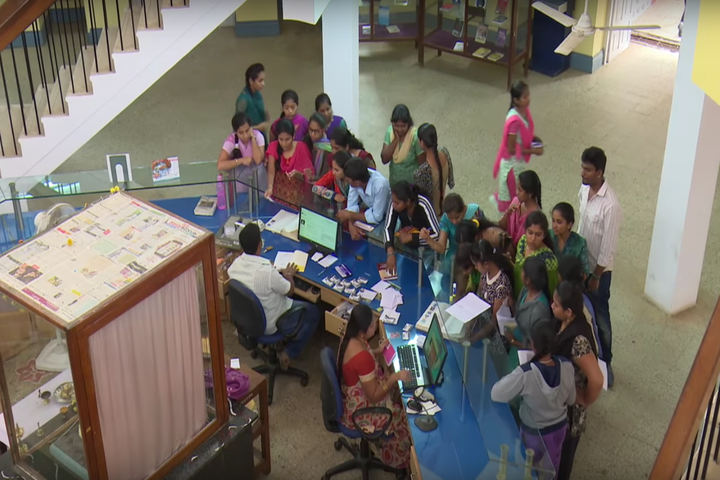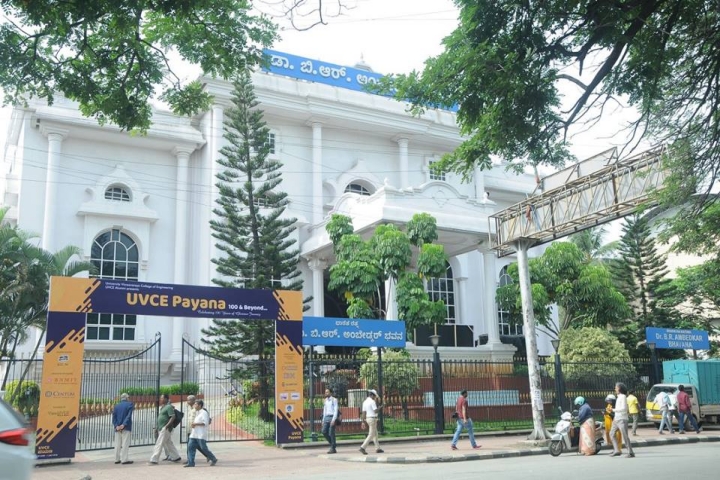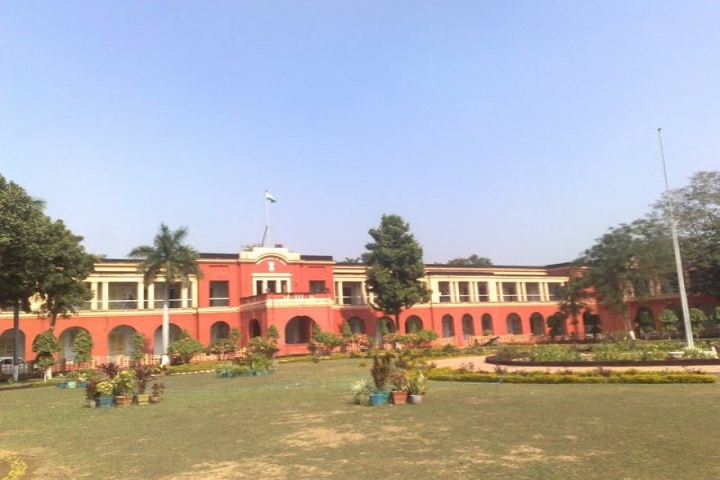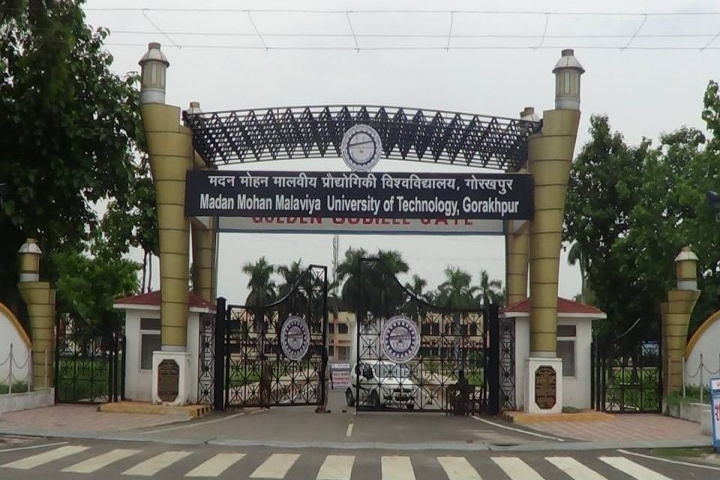
Earthquake Engineering Course Details - Fees, Subjects, Syllabus, Duration, Eligibility, Career Scope
Degrees offered: M.E /M.Tech., M.Sc., Ph.D
What is Earthquake Engineering
Earthquake Engineering is a study which talks about how the society and other natural, as well as human-made structures, can be protected from earthquakes by reducing the seismic risk to the acceptable levels. The main aim of the Earthquake Engineering course is to build systems which can withstand seismic impacts. Earthquake Engineering course helps in the analysis and designing of those structures which support the load. It is a sub-branch of civil engineering. Soil Mechanics, Construction Management Processes, Concrete technology, Applied Construction Project Management and Geology are few subjects that are taught during the course.
Earthquake Engineering attempts to resolve the danger of earthquakes on the buildings where during the course aspirant is taught engineers plan, design, construct and manage earthquake resistant structures and facilities. Since almost 60% of the area is earthquake-prone and has various degrees of sensitive zones, the engineers must build buildings which are resistant to earthquakes.
Eligibility Criteria (UG & PG) of Earthquake Engineering
Earthquake Engineering course is only available for Post Graduation.The following would be the criteria required for getting admission to Earthquake Engineering course in various colleges –
The candidate should have completed B.Tech with at least 60% aggregate marks in the above course. A buffer of 5% is given to the SC/ST candidates.
They should have pursued Electronics/Instrumentation/Biomedical/Electrical or other allied branches.
Earthquake Engineering Entrance Exams
Earthquake Engineering course is available for post-graduation only. So the exams written below would enable the students to get admission in PG offering colleges.
GATE - GATE is an online national level entrance examination. Some of India’s top colleges accept students for postgraduate courses based on the GATE scores. Some of which are IITs and NITs among many other colleges throughout India. This exam is conducted once a year for 3 hours. The candidates have the options to apply for any 2 papers out of 25 papers.
CUSAT- Cochin University of Science & Technology is a 3-hour-long online university-level entrance with objective type questions. There is negative marking for every wrong answer. The paper would contain questions from subjects of mathematics, physics and chemistry.
ICAR AIEEA- (Indian Council of Agriculture All India Entrance Examination) - Indian Council of Agriculture All India Entrance Examination is an online entrance exam. It is conducted once a year for 2.5 hours. The paper would contain objective type questions from mathematics, physics and chemistry subjects.
TS PGECET- Telangana State Post Graduate Engineering Common Entrance Test is an online entrance exam conducted by the Osmania University in May with objective questions. The students have to score a minimum of 50% marks in their graduation degree.
College Predictors VIEW ALL
Scope of Earthquake Engineering in India and Abroad
Earthquake Engineering course is newly introduced in the academics and industry. A lot of scope lies in this field. The engineers can gather and perform research on the data of different sources and locations and then find solutions to make the structures which are resistant to earthquakes. This is the prime responsibility of the earthquake engineer.
Apart from this information gathering, the Earthquake Engineering graduates also have an on-field job to collect information from the residents and other sources.The engineers can also work in the Research and Development sector. The private companies as well as public employees hire these engineers when they are making buildings, railways, highways, ports, bridges, and space stations.
Course Subjects
The Earthquake Engineering course is divided into 4 semesters out of which 1 semester the students go for industrial training. The subjects taught are –
The vibration of the Elastic Method
Numerical Methods for Dynamic Systems
Seismological Modelling and Simulation
Vulnerability and Risk Analysis
Ground Shaking Hazard
Dissertation
Seismic Evaluation and Retrofitting of Structures
Seismic Disaster Mitigation and Management
Earthquake Precursors and Early Warning Systems
Instrumentation and Model Testing Techniques
Careers in Earthquake Engineering
The students after graduating from Earthquake Engineering course can be hired as Volcanologists, petroleum Geologists, Environmental Geologists, Earth Science teachers, Glacial or Quaternary geologists, Structural geologists and Hydrologists. They can even get engaged in the public and private sectors in the construction of space stations, bridges, ports, highways, railways and buildings. Also, Earthquake Engineering graduates can take up the profession of teaching at college and universities.
Upcoming trends
Since the Earthquake Engineering course is an ever-increasing one, a lot of new trends will be coming in one by one. Some of them have been written below –
There is going to be the use of probabilistic analysis and design approaches in the future which is going to replace the present deterministic approaches.
The present use of descriptive codes will now be replaced with the performance-based design processes.
The range of the acceptance criteria for the new designs will be explained by the performance objective and hazard level for the structure.
The use of analytical tools will continue even in the future and will be updating it now and then for including the latest features into it.
Students also liked
Job Profiles and Top Recruiters
Earthquake Engineering Job Profile
Earthquake Engineering course has a lot of opportunities for the students to work in and in different positions.
Job Profile | Description |
Conservation Hydrologist | They look at the safety of the environment when the dams are built, or some water projects have been taken up, such as hydroelectric power plants. They determine the amount of pollution in water by gathering samples from water bodies. They use simulation in order to determine the occurrence of floods, drought and tsunamis. Develop strategies to find out the best ways of water maintenance, management and conservation. They also test the properties of water like its pH, flow rate etc. |
Seismic Data Interpretation Engineer | They make and analyse the models of 2D, 3D and 4D generated by a computer. They use sound waves to make geological structural maps. They record and analyse the mathematical data collected. From the data collected, they apply mathematical models and give seismic responses and hydrocarbon production. |
Mineral Engineer | They keep a watch on the mining of underground resources. They see that there is a safe and efficient extraction of these resources. The operations carried out by the team should comply with the health and safety standards and ensure that the equipment used during extraction is safe for the environment. |
Geo-scientist | They conduct on-field studies, visit different locations and collect samples from there. On the gathered samples, they carry out surveys and gather all other necessary information. Study of the physical aspects of the earth like the earth’s composition, structure, processes and the past, present and future of the earth and its resources. |
Seismic Data Collection Engineer | They play an active role in the oil and natural gas industry. They conduct surveys, send vibrations beneath the surface of the earth. They check the composition of different layers of the earth. |
Geoscience Engineer | These scientists coordinate work between a different scientist at locations outside the lab and in the lab. They supervise if the technicians are working properly or not. They also take an active part in the research and development fields of many natural resources such as petroleum. Some of these engineers are involved in preserving and protecting the environment and also take part in the projects related to the cleaning and reclamation of the land. They have the opportunity to also tale up the specialisation in a particular aspect of the earth, such as oceans. |
Survey Geologist | These geologists work on various surveys which are conducted by the state and the central government. They interpret the data and formulate a framework which explains the variety of different minerals and energy resources present in the environment. |
Top Recruiter of Earthquake Engineering Graduates
The most common question asked by students would be which companies would recruit Earthquake Engineering graduates. So here is the list of companies that come to recruit these engineers –
GSI – Geological Survey of India
CGWB – Central Ground Water Board
ONGC – Oil and Natural Gas Commission
MMTC – Minerals and Metals Trading Corporation
Hindustan Zinc Ltd.
Coal India and Mineral Exploration Ltd.
Average Salary
Each job profile offers a different salary for the new graduates and the experienced ones. Below is the estimated average salary offered to a Earthquake Engineering graduates at different job profile:-
Job Profile | Average Annual Salary |
Geoscience Engineer | Rs. 4-6 lakhs p.a. (Approx.) |
Geo-scientist | Rs. 4-6 lakhs p.a. (Approx.) |
Seismic Data Collection Engineer | Rs. 9-10 lakhs p.a. (Approx.) |
Seismic Data Interpretation Engineer | Rs. 10-11 lakhs p.a. (Approx.) |
Mineral Engineer | Rs. 6-8 lakhs p.a. (Approx.) |
Survey Geologist | Rs. 5-7 lakhs p.a. (Approx.) |
Conservation Hydrologist | Rs. 2-4 lakhs p.a. (Approx.) |
Required Skillset for Earthquake Engineering
The Earthquake Engineering aspirants require a perfect combo of all the skills. The need to handle and keep everyone secured during their work.
Creativity – The engineers need to find out creative ways of building structures which are earthquake resistant. They also have to solve the problems creatively related to different subjects like buildings, bridges, and railways.
Team working and communication skills – Being a leader, the engineer would give out his points, which may sometimes be wrong if he doesn’t consider all the points or oversee some of them. For this purpose, his communication skills should be strong enough that his team opens up to him and put forth their points also. He should keep the group together, coordinated and happy.
Good attention to details – The engineers should pay close attention to all the details in the structures. Anyone small mistake can lead to the falling of the entire structure due to natural calamity.
Excellent mathematical, IT and analytical skills – They should know physics and mathematics perfectly for applying their knowledge to these structures. This knowledge of theirs would also make them reach great heights.
Course Curriculum for Earthquake Engineering
Earthquake Engineering course explains the students why seismic design is important and gives insights into the principles of seismic hazards, its analysis, structural dynamics and inelastic behaviour. The engineers would learn how the previous earthquakes harmed the building and then practice how to build earthquake-resistant buildings. Learn how to use modern concepts to reduce the costs, downtime and casualties. Sometimes the ground vibrations are amplified due to the structural vibrations; they learn how to combat their structures.
Popular Online Engineering Courses and Certifications
Popular Earthquake Engineering Entrance Exams in India
Frequently Asked Questions (FAQs)
Question: Who is a seismologist?
Answer :
These are the scientists who study the earthquakes and the planetary activities and their effects on the environment. They use instruments which test the earth’s crust. Their working area is usually offices and laboratories, but some may even go to sites and carry out seismic activities there.
Question: Which structure would be earthquake resistant?
Answer :
When wooden frame houses are used, they are earthquake resistant. Even the unreinforced masonry structures are also vulnerable to the earthquake. The modern and well-designed and well-constructed houses are also resistant to the earthquake.
Question: What is the difference between a seismic zone and seismic hazard zone?
Answer :
These two words are very easily used interchangeably, but they have different meanings. Seismic zone refers to the place where the earthquakes tend to focus themselves, while the seismic hazard zones describe a particular level of hazard in the area.
Question: What would the fees be for an Earthquake Engineering course?
Answer :
The fees can vary from private colleges to public colleges. On average it ranges from Rs. 80,000 – Rs. 5 lakhs p.a. (Approx.).
Question: Which are the top colleges offering Earthquake Engineering course?
Answer :
The top colleges that offer Earthquake Engineering course are –
NIT Silchar
IIT Roorkee
IIT Kharagpur
Visvesvaraya National Institute of Technology, Nagpur
Chaitanya Bharathi Institute of Technology, Hyderabad



.JPG)















